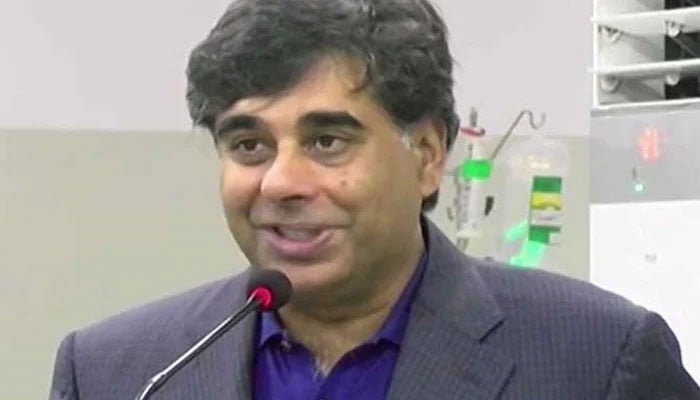Govt puts sugar exports on hold to avert domestic shortages
ISLAMABAD: The caretaker government has decided to restrict sugar exports to avoid potential shortages and price hikes in the domestic market, a government body said on Wednesday.
The Sugar Advisory Board (SAB), a tripartite body comprising representatives from the federal and provincial governments and the sugar industry, met on Wednesday to consider a request from sugar millers to export 0.5 million tons of sugar before the start of the new sugarcane crushing season in November. Commerce Minister Gohar Ejaz, who chaired the SAB meeting, said the government had decided to break away from the previous cycle of exporting sugar and then importing it due to local market shortages.
"We will not allow the export of sugar till the full production and consumption are assessed at the end of the season," Ejaz said on social media platform X , adding that another SAB meeting would be held to implement a track and trace system to monitor sugar production and consumption in the country. Last year, the coalition government of the Pakistan Democratic Movement (PDM), allowed the export of nearly a million tons of sugar, which led to a surge in domestic prices.
Despite the government's condition that retail sugar prices should not exceed Rs100 per kg, prices initially remained within the range but later soared to a record high of Rs200 per kg in August, prompting the government to ban exports from Aug. 10. The current caretaker government, which took over in August to conduct polls in Februaray, has decided to postpone any export decisions until the end of the cane crushing season in March 2024, when the actual production and demand figures will be available.
If the supply exceeds the demand, surplus exports may be considered, the SAB statement said. However, reports suggest that the sugarcane crop yield may be lower than last year due to unfavourable weather conditions and pest attacks.
Sugar millers, who have been lobbying for export permissions to benefit from government subsidies and higher local prices, have been accused of inflating their stocks and smuggling sugar to neighbouring Afghanistan, which has contributed to higher prices in the domestic market.
The lack of an audit mechanism has also exposed the government to manipulation by the millers, who have been accused of price-fixing, fake exports and money laundering in a 2020 Sugar Inquiry Committee report.
The 2020 Sugar Inquiry Committee report, pointing to sugar price-fixing, fake exports, and potential money laundering, underscores the need for transparency and accountability in the sugar industry. The government is urged to implement measures, including an audit mechanism, to ensure accurate and transparent stock figures, thus preventing price-fixing and corruption in the industry.
-
 Chinese New Year Explained: All You Need To Know About The Year Of The Horse
Chinese New Year Explained: All You Need To Know About The Year Of The Horse -
 Canadian Passport Holders Can Now Travel To China Visa-free: Here's How
Canadian Passport Holders Can Now Travel To China Visa-free: Here's How -
 Glen Powell Reveals Wild Prank That Left Sister Hunting Jail Cells
Glen Powell Reveals Wild Prank That Left Sister Hunting Jail Cells -
 Edmonton Weather Warning: Up To 30 Cm Of Snow Possible In Parts Of Alberta
Edmonton Weather Warning: Up To 30 Cm Of Snow Possible In Parts Of Alberta -
 'A Knight Of The Seven Kingdoms' Episode 5: What Time It Airs And Where To Stream
'A Knight Of The Seven Kingdoms' Episode 5: What Time It Airs And Where To Stream -
 Amy Schumer Drops Cryptic Message On First Valentine Amid Divorce
Amy Schumer Drops Cryptic Message On First Valentine Amid Divorce -
 Savannah Guthrie Sends Desperate Plea To Mom Nancy Kidnapper
Savannah Guthrie Sends Desperate Plea To Mom Nancy Kidnapper -
 NBA All-Star 2026 Shake-up: Inside The New USA Vs World Tournament Format
NBA All-Star 2026 Shake-up: Inside The New USA Vs World Tournament Format -
 Warner Bros Consider Reopening Deal Talks With Paramount, Says Reports
Warner Bros Consider Reopening Deal Talks With Paramount, Says Reports -
 Andrew Mountbatten Windsor Faces Future With UK MPs, Says Expert
Andrew Mountbatten Windsor Faces Future With UK MPs, Says Expert -
 Eva Mendes Shared Bedroom Photos For Ryan Gosling On Valentine’s
Eva Mendes Shared Bedroom Photos For Ryan Gosling On Valentine’s -
 Shamed Andrew Told 'nobody Is Above The Law' Amid Harrowing Silence
Shamed Andrew Told 'nobody Is Above The Law' Amid Harrowing Silence -
 Gisele Bundchen Melts Hearts With Sweet Bike Ride Glimpse Featuring Son
Gisele Bundchen Melts Hearts With Sweet Bike Ride Glimpse Featuring Son -
 Prince William Found Meghan Markle ‘quite Refreshing’ At Start
Prince William Found Meghan Markle ‘quite Refreshing’ At Start -
 Kate Middleton Knew Should Could Not Be ‘voice Of Reason’ With Prince Harry
Kate Middleton Knew Should Could Not Be ‘voice Of Reason’ With Prince Harry -
 Rihanna Has Wardrobe Malfunction At A$AP Rocky Fashion Show
Rihanna Has Wardrobe Malfunction At A$AP Rocky Fashion Show




